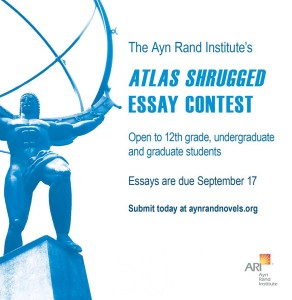Put education back into state, local hands
By Scott Garrett
Many pundits claim America’s K-12 education system is stagnant and doesn’t equip our nation’s youths with the skills necessary to remain globally competitive in the 21st century. In response, President Obama has recommended the adoption of Common Core standards, a uniform set of benchmarks that must be met by students at the end of each grade. The president has sold Common Core as an innovative set of national standards that will achieve academic excellence.
Unfortunately, we have heard all of this before.
More than a decade ago, President George W. Bush’s No Child Left Behind was signed into law. At the time, NCLB was advertised as dynamic, flexible and federally driven — education reform that would advance academic achievement through accountability. Today, NCLB is considered a failure. After spending billions and enacting rigid punishments for failing schools, no discernible academic improvement was achieved.
The centralization of education did not begin with NCLB. For half a century, Washington has pursued control of the classroom by attaching strings to federal education dollars sent to the states. Yet despite spending roughly $2 trillion and decades of increased federal regulation, reading scores remain flat, education costs have more than doubled, student-teacher ratios continue to decline, high school graduation rates remain unchanged since the 1970s and achievement gaps persist.
The tradition of federalized education has failed our students. And on this tradition the president proposes to double down.
Common Core is the predictable result of the Obama administration’s coercion of cash-strapped states. In return for a state’s adoption of Common Core, the administration promised the states a share of a $4.35 billion bounty.
Some officeholders don’t trust people outside Washington to come up with solutions. I disagree.
Some officeholders don’t trust people outside Washington to come up with solutions. I disagree. Rather than centralizing education, I believe that states and localities — those closest to the students — should set academic standards. The state and local governments are our laboratories of democracy. By promoting innovation at the state and local level, where parents and teachers have a louder voice, we provide ourselves with the opportunity to replicate our successes and learn from our mistakes.
But arrogant, top-down dictates, such as Common Core, rob us of this opportunity. We should allow federalism to work and defer to local experience.
That is why I’ve introduced the Local Education Authority Returns Now Act. The LEARN Act would allow states to opt out of federal education regulations and retain the dollars that would have been sent to Washington by reimbursing the taxpayers through a tax credit. The process is simple, straightforward, and empowers parents, teachers, school boards and local officials.
The LEARN Act works in three steps. First, a state decides that strings attached to federal money are hampering the ability of parents and teachers to educate their children as they see fit and enacts a law opting out of the federal program. Second, the Treasury Department determines how much money an opt-out state is entitled to. Finally, the taxpayers of the opt-out state receive a tax credit to reimburse them for the funds diverted to Washington. This method immediately cuts the authoritative and financial strings of the federal government, allowing states to set appropriate education standards.
The future of our nation depends on our ability to educate and train the generations that will carry on the legacy of freedom and prosperity. Today, states must focus on complying with federal mandates rather than cultivating an atmosphere that allows our educators to effectively educate our students.
We’ve experimented with centralized education before, and it failed. We cannot merely replace one set of federal dictates with another. The time has come to put our children first by returning control to those who know them best.
Rep. Scott Garrett is a Republican representing New Jersey’s 5th Congressional District















